Takigyo, Japanese waterfall meditation, is a sure way to shock yourself out of your winter rut
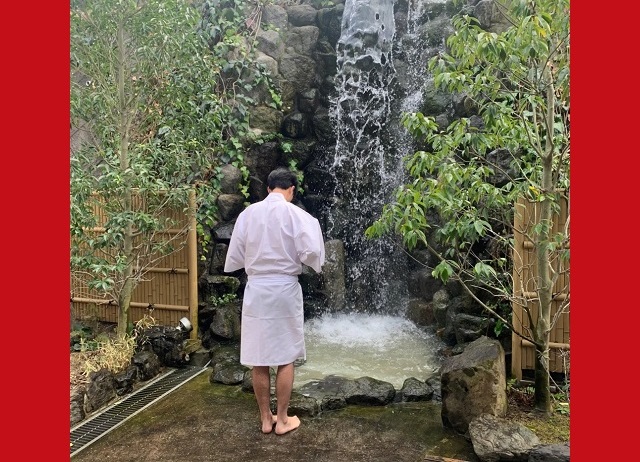
After one too many lazy Saturdays, we find ourselves standing at the foot of an ice cold waterfall.
Our Japanese language reporter Masanuki Sunakoma has been in a rut: Sleeping until noon, only dragging himself out of his futon far enough to tuck his legs under his heated kotatsu table, and then lazing there all day until he rolling the few feet back into bed and going to sleep.
Sure, it’s a comfortable rut, but a rut is a rut, and recently he decided he needed to jolt himself out of it, so he decided to go and do takigyo.
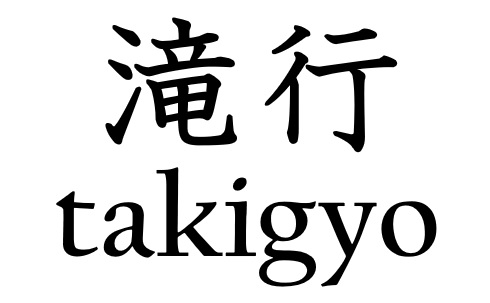
By themselves, the kanji characters mean “waterfall” and “go,” so you might think takigyo refers to going to a waterfall to clear your mind and refresh your spirit through the tranquil atmosphere of nature. That’s…half-right.
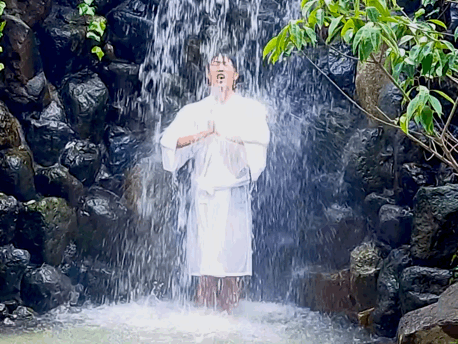
What takigyo actually is is a form of ascetic meditation practiced in Japan, done while standing underneath a waterfall and letting the water pound on you, driving out mental impurities, evils, and other negative distractions from your mind.
While it’s a part of traditional Japanese culture, for safety reasons we don’t recommend just running off into the mountains and parking yourself under the first cascade you find. Luckily for Masanuki, Ryusenji Temple in the town of Kita Kyushu, not far from where he lives in Fukuoka Prefecture, offers a takigyo program on the second Saturday of every month. Participants of any and all religious beliefs are welcome, and Masanuki showed up for the mid-February session.
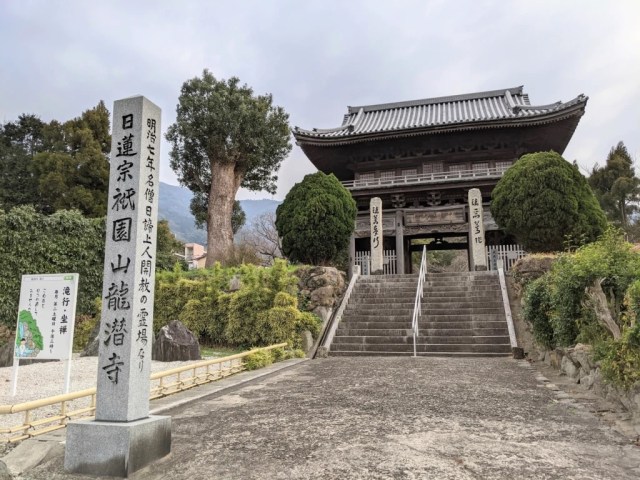
▼ A temple with a cute illustrated sign saying “Please Google our traditional waterfall meditation program” encompasses a lot of what we love about Japan.
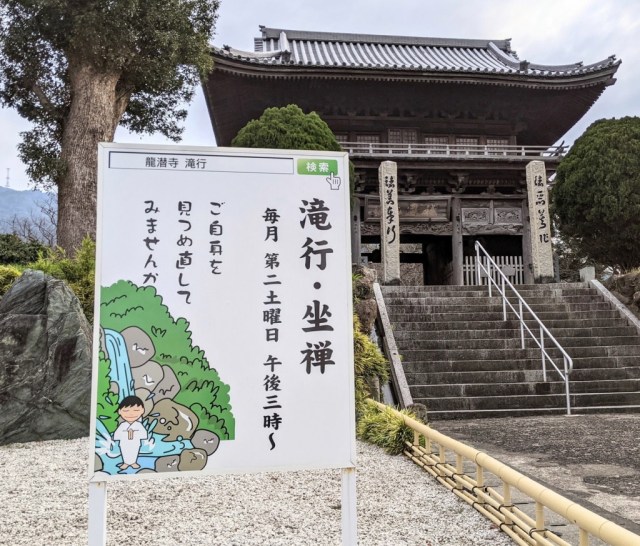
The entire program takes about 90 minutes and costs 3,000 yen (US$29). It starts with an explanation of the procedure and also some quick questions about your current physical state (for example, the water is entirely unheated, so it’s best to sit out if you’ve already got a cold). You’re then loaned a white robe called a gyoe to change into.
▼ You’re allowed to wear underwear or a bathing suit underneath the gyoe, in case you’re brave enough to stand under a waterfall but not bold enough to go commando while doing it.
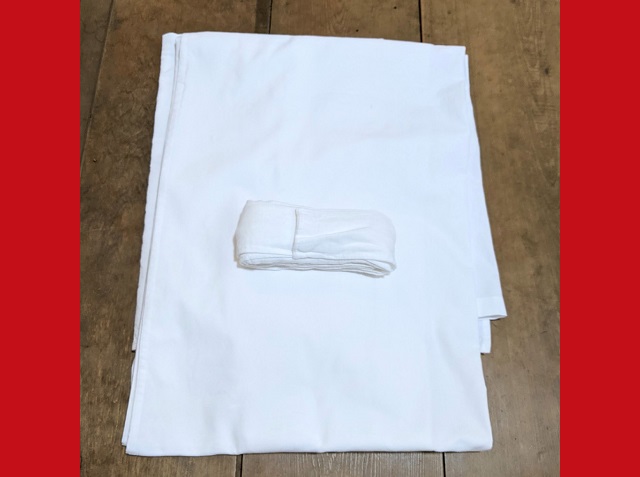
After changing, Masanuki was led by Ryusenji’s abbot to the waterfall.
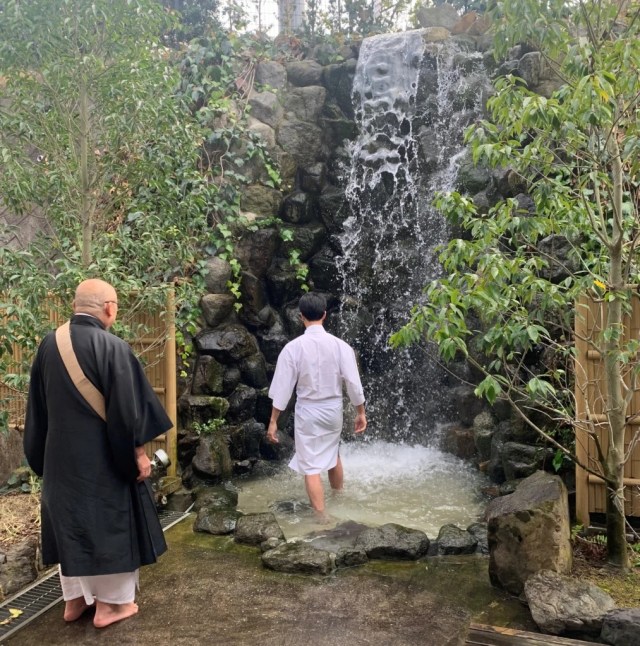
Steeling himself away, Masanuki took a deep breath, and then a big step as he entered the basin…
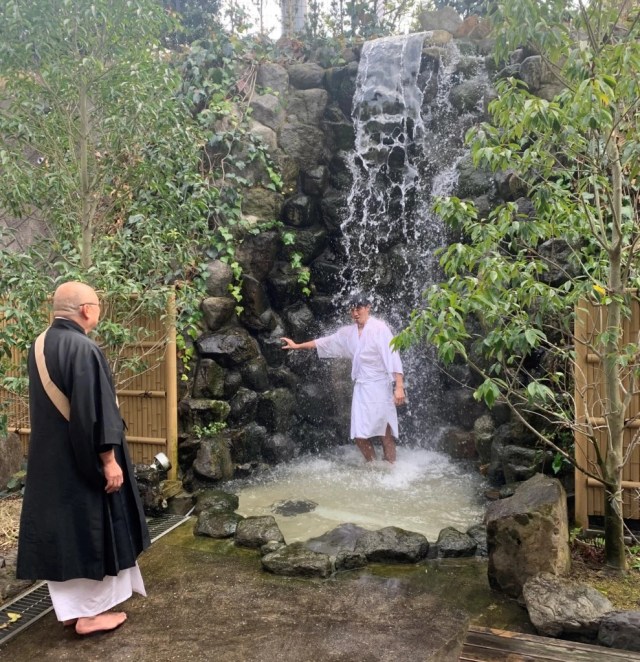
…and positioned himself directly under the falling water.
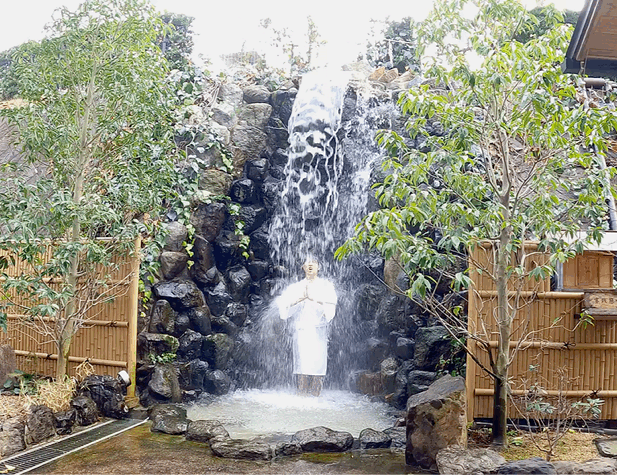
The water was icy cold on his feet and scalp, and his gyoe was instantly soaked. But as he pressed his hands together and repeated the chant the abbot had taught him, the frigid sensation began to fade.
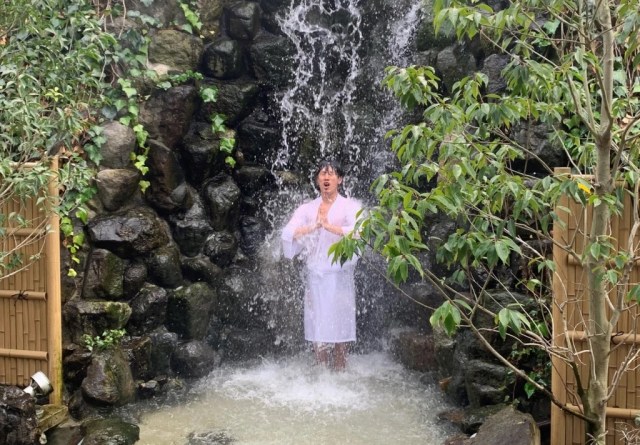
The impact of the waterfall wasn’t outright painful, but the unrelenting force gives the mind little space to think about much else. What small sliver of conscious thought Masanuki had left he put towards continuing his chanting, and his mind had no leftover capacity to worry about, or even really notice, the water’s temperature.
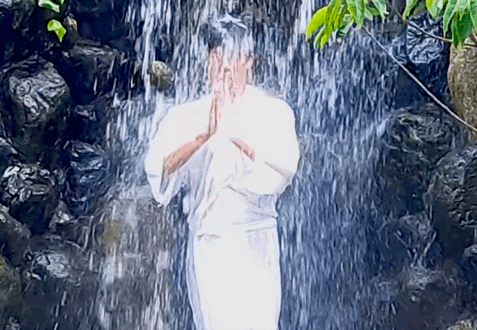
Participants spend about 20 minutes at the waterfall, and when the abbot signaled for Masanuki to step out from the pool, he was immensely refreshed. Both his stress and his listlessness had been scrubbed off and swept away, and he felt like a whole new person.
After drying himself off (participants are asked to bring their own towels) and changing back into his own clothes, Masanuki headed inside for the last portion of the program, an hour of sutra chanting and quiet zen meditation. “It really felt like I did something good for myself,” he says, and if you’d like to do the same for yourself, Ryusenji’s takigyo program application form can be found here.
Related: Ryusenji website
Photos © SoraNews24
● Want to hear about SoraNews24’s latest articles as soon as they’re published? Follow us on Facebook and Twitter!
Credit:

0 comments:
Post a Comment